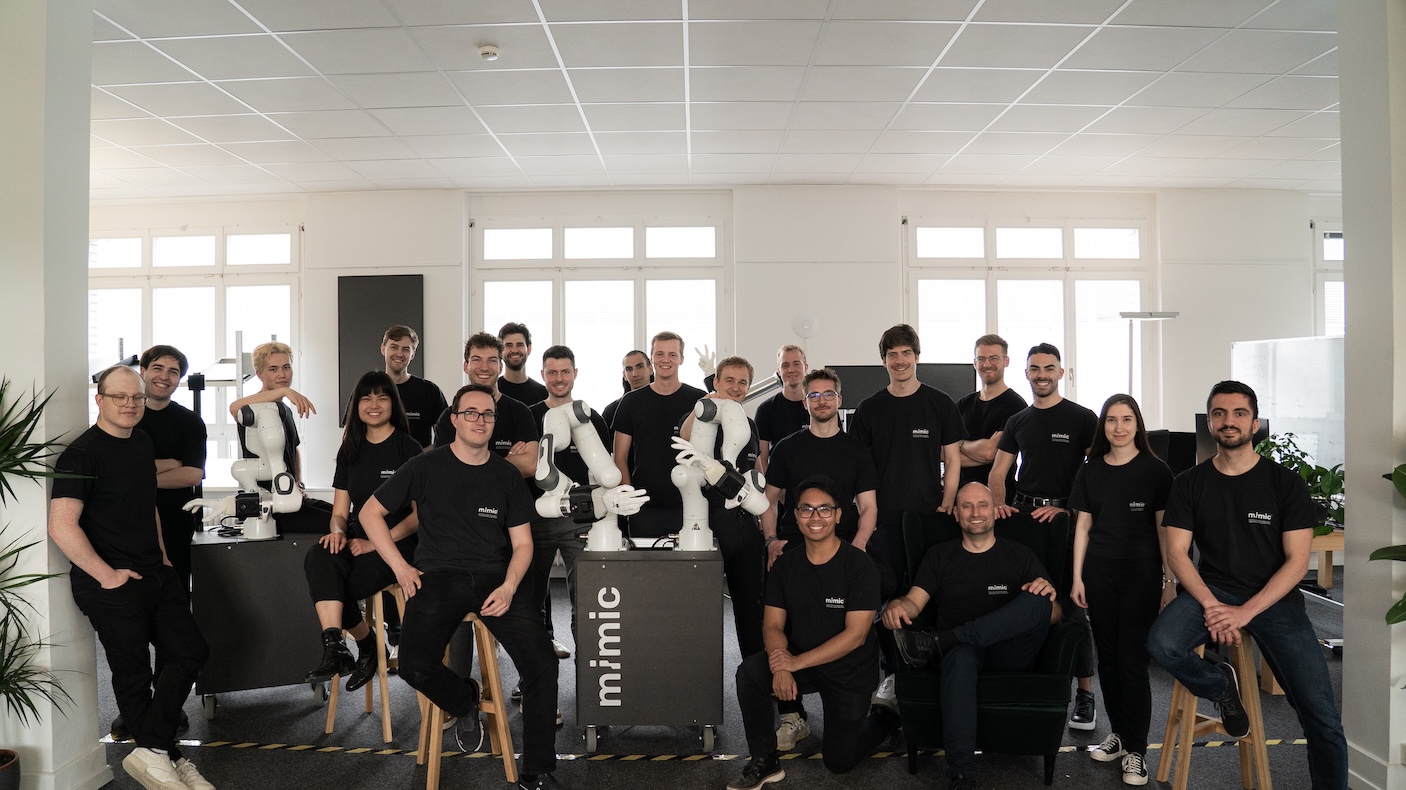Sector-focused Predictions in 2024 for Founders From Early-Stage Investors
The meteoric rise of AI, fintech fizzled, climate tech funding increased despite the downturn, and quantum leaps were made in quantum technology. These are just a few of the most talked about tech trends in 2023. So what’s in store for 2024?
To better understand what to expect in the year to come, we turned to our in-house experts –– partners from our Deep Tech, Fintech, Health & TechBio, Climate Tech & Industrial Tech, Marketplaces & Consumer, and SaaS & Infra investment teams.
Find out what they believe will be the technologies, trends, and changes in their respective sectors in the video above.
Health & TechBio
I think 2024 will be full of contrasts. There’s the glass half-empty view. The market environment will remain tough for fundraising. Many healthtech founders will have to make tough cuts, stretch their runways, and find innovative partnerships to generate enough evidence and scientific validation with limited resources. The speed of distribution and reimbursement will remain a challenge even for the best DTx and clinical decision support tools. Providers will continue to experience P&L pressures, staff burnout and shortages, and growing waitlists, making it difficult to push through innovations that are not mission critical to right here, right now.
Then there’s the glass-half-full view. I believe we will see a fresh wave of enthusiasm and government focus around digital and data infrastructure in healthcare. I also believe we will see more ecosystem partnerships being announced. AI co-pilots will continue to proliferate. Some will break through the noise and make a visible dent in eliminating the admin burden in healthcare. AI-powered R&D will continue to be center stage in pharma and biotech and I think we will see some really exciting breakthroughs in 2024 coming from Europe. We will see more and more clinician- and scientist-turned founders profiles, building tools they wish they had.
Lastly, I foresee the M&A activity heating up. Founders with prior M&A experience, proactively driving consolidation could create a lasting advantage in 2024. –– Andrea Zitna, Partner
Deep Tech
We are still very bullish on the European deep tech ecosystem. There are a couple of reasons. Firstly, each year, the deep tech ecosystem is getting stronger in Europe, and also becoming more competitive on a global scale. We're trying to catch up to the potential set up by the world-class academic institutions in Europe.
And also, interestingly, if you look at European founders, they have become more ambitious, in particular, in the deep tech sector. In 2024, we see four particular potential trends.
The first is Lithium-ion battery technology. We feel technology in this space is getting more and more mature. We think it is going to be dominant among the different kinds of light battery technology, and they are going to be a key player in driving long-term, sustainable plant energy in the future.
Secondly, we think the rate of change in the AI market is going to continue to accelerate. All those new capabilities brought by those new frontier AI models will be implemented into many different verticalized applications. In addition, we think AI safety, trust, and governance are going to be more important. However, we still think that they will remain under-invested at the moment.
Thirdly, we anticipate robotics will still gain a lot of momentum due to the introduction of the new AI capability to advance the control systems. Lastly, and most interesting, I think, is that space tech is booming, mainly due to the mature, cheap infrastructure. Particularly in Europe, we can see there is a strong entrepreneurial push from those existing academic institutions or the incumbents, trying to educate and incubate more interesting deep tech startups. –– Rick Hao, Partner
Climate Tech & Industrial Tech
I think climate can and will be one of the future growth areas for the European tech sector. Why? Because I think this transition to a zero-carbon economy opens up massive opportunities and will change entire industries. And this will create the opportunity to build the big businesses of the future.
This is not a hype. And this is not something that goes away fast. I think if you look at the penetration of renewable energy, if you look at the rollout of electric vehicles, if you look at the two underlying trends that the climate tech sector is building upon, then we see massive momentum. That's why I think more and more investors will realize this is something that they should look at. This is something where they also should invest – resulting in more investors investing in climate tech in the coming year.
That being said, a lot of these investments require hardware. If you want to invest in climate tech, there are business models that are very capex-heavy. There are business models where you need to touch physical goods. You cannot remove carbon from the atmosphere without touching physical goods.
So there will be more capital in the market, but I think a lot of investors will be going through the learning curve of what it actually means and requires when investing in climate tech. Because it is very different from just investing in software businesses. –– Andreas Schwarzenbrunner, Partner
SaaS & Infra
We’re interested in companies that solve real problems for a large number of people.
I'd say a big trend we continue to see is real-world applications that help digitize entire industries and make them more cost-effective and more future-proof, whether in compliance, procurement, supply chain, or traditional blue-collar industries. That's one area that might not be as obvious but that I am passionate about personally. I think those building blocks of modern companies are more needed than ever before. There's still a lot of work to do.
There are a lot of very manual, old-fashioned processes that are not yet digitized or that are stuck with 30-year-old incumbents. So I think we will see a lot of innovation in that space that will be partly, but not only, powered by artificial intelligence. I think that's a trend that is here to stay. I think every company is going to be an AI company. Every company will leverage AI to some extent. –– Markus Lang, Partner
Marketplaces & Consumer
As a team primarily focused on marketplaces, we look for the potential to develop strong network effects in (almost) every company we invest in. Our Marketplaces & Consumer Team continues to be excited about companies built on top of strong network effects as a long-term sustainably defensible moat. In our view, this is a long-term trend that will never go away and has created extremely valuable and resilient companies including AirBnB, Meta, and Amazon, and will continue to do so. That means we have a clear preference for pure-play marketplaces.
However, there are, of course, a few trends that we are following. Within marketplaces, we see the following key developments in 2024 and beyond:
- Commerce 3.0: the building blocks of the future of commerce
- Sustainability and Climate: helping both consumers and companies prepare for a greener future
- Marketplace Enabling Technology: AI and Generative AI to allow marketplaces to deliver a superior customer experience and compete in the market
On AI specifically, we see personalized shopping, advanced search and discovery, dynamic pricing optimization, supply chain management, and visual search and AR integration as areas ripe for disruption due to AI.
Gen Z as the “new consumer” is another trend that we follow closely within the broader field of marketplaces and commerce. Within that overarching trend, we see four major shifts: fundamentally new shopping habits, livestream shopping, transformation in retail, and higher social and environmental awareness.
B2B platforms and marketplaces remain an all-time favorite. What happened for B2C and C2C will also follow in B2B. We have already invested into a lot of B2B marketplaces and continue to look for more opportunities to digitize an old-fashioned industry through a marketplace approach, category by category, market by market.
Similarly, we believe that Emerging Markets will catch up to developed markets when it comes to the rise of marketplaces. We expect that emerging markets will experience a similar rise in marketplace models as developed markets have in the past but are sometimes lagging behind e.g. due to missing infrastructure. There are clear pockets of disruption and fragmentation where emerging players are growing quickly –– particularly in Latin America and Asia Pacific where there is a lower level of marketplace dominance and ecommerce penetration –– giving insurgents a clearer opportunity to grow rapidly with the right value proposition and localized approach. –– Mathias Ockenfels, General Partner
Fintech
First of all, emerging markets remain a very big trend. A lot of innovations that have already happened in developed markets are just now coming to the rest of the world –– in LATAM, Africa, and MENA –– and we’re actively investing there.
In more developed markets, there is a huge trend in wealth management and wealth tech. This is driven by the unprecedented growth of private wealth in the last decade and with the next couple of decades promising to be the largest generational wealth transfer in history.
Apart from this, climate is on everyone's agenda. We believe that financial institutions and fintechs can be another driver to mitigate climate change and be instrumental in transitioning to a zero-carbon economy.
We also believe that vertical fintech is on the rise. We have passed the era of one-fits-all solutions. Specific verticals, like construction, procurement, logistics, and financial solutions tailored for these industries make much more sense from the product perspective and revenue potential, but also in customer acquisition costs.
Last but not least, blockchain and crypto infrastructure. Despite there being a clear crypto winter right now, we fundamentally believe that new tech can bring a lot of efficiency into capital markets, payments rails, and many other fundamental industries in the core of how finance works today. –– Olga Shikhantsova, Partner
Want more updates on our portfolio? Sign up for our monthly newsletter and follow us on LinkedIn.












.svg)
